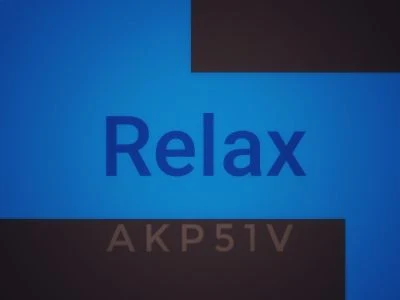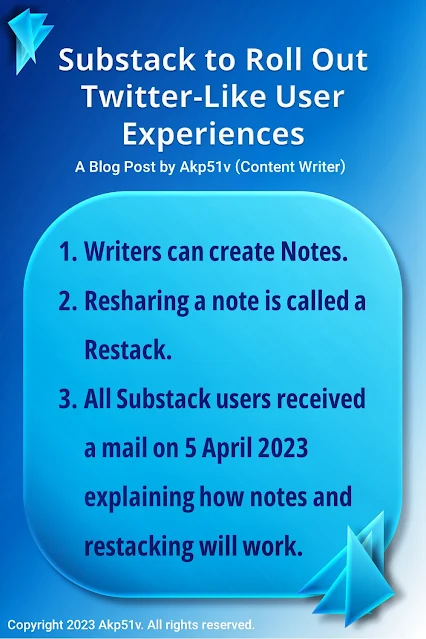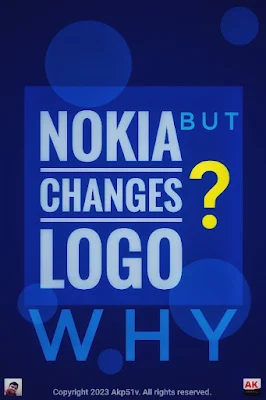Relaxation Improves Productivity | SMD Akp51v
In today's fast-paced society, it's more difficult than ever to find the time to relax. But I can tell you from experience that relaxation is an essential part of being productive and achieving your goals. It improves your mental health, which in turn helps you focus better on the tasks at hand.
 |
| Article image "Relaxation Improves Productivity" by Akp51v |
Relaxation is like a mini-vacation for your mind.
There are many ways to achieve a relaxed state of mind. For example, you can take a short break from your work and go for a walk in the park.
Or you could do some yoga, or even meditate for five minutes after lunch. If all else fails (and it shouldn't), just take 10 deep breaths and focus on your breathing for a few moments before going back to work again!
Relaxation is about feeling good about what you’re doing at the moment.
Don't allow distractions to get in the way of your relaxation time.
When you're trying to relax, it's important to limit the number of distractions that can get in the way. This means turning off your phone, computer, and television.
If you have a doorbell or other form of communication coming into your home, consider having someone else answer while you're relaxing.
Read Also: Crying Is Okay, You know
The same goes if people are coming around who know they can find you at home during certain hours—if possible, do everything in your power to avoid being found during those hours!
You'll also want to take care not to answer any calls that aren't emergencies: all calls should go directly through voicemail when you're taking time out for yourself.
Practice mindfulness and meditation.
Meditation is a way to relax your mind. It's more than just sitting still, it's a way of being present and getting in touch with your body and mind. You can practice mindfulness anywhere, at any time—even on the go.
As long as you're able to close your eyes and focus on one thing, meditation can be done anywhere: in a car or subway train; at home or work; even lying down on your bed!
There are many different methods of meditation: some people prefer guided meditations that help them keep their focus throughout their session. Others like listening to music or nature sounds while they do their thing (or nothing at all).
It’s completely up to you how you want to approach it—the important thing is that you find something that works for YOU.
Visualize calmness and peacefulness.
The power of visualization is incredible. It can help you relax, focus, improve your health and memory—even increase productivity. The trick to harnessing its full potential is developing a clear vision for what you want the outcome to be.
Visualizing a relaxing vacation might not be as helpful as visualizing yourself at work with no stress or anxiety in sight.
This isn't always easy; many people have trouble quieting their minds enough to do this effectively. But if done correctly, it's incredibly powerful and effective at making real change in your life—and improving productivity is just one example!
Complete your desk work before going home.
When you get home, relax.
Why? Because when you're relaxed, your brain has time to process everything you've learned throughout the day. It's not trying to focus on relaxing and letting go of stress. Instead, it's still trying to figure out how to do all those tasks that piled up during the workday (and then some).
Don't Miss: Multitasking - Its Nature and Prevention
So before you leave for home, take care of as much desk work as possible—that way when you're ready for bedtime (or Netflix), your mind will be able to relax more quickly without worrying about unfinished tasks at work.
Take the time you need to relax, but don't take too long on it.
But, as I said before, it’s possible to enjoy your leisure time without letting it interfere with work or family. It’s all about balance. If you have a great job that allows you to make your hours and take a lot of time off during the day (or even on weekends), then by all means do so!
But if every hour is accounted for at work and home, it helps to be choosy about how you spend your free time.
Explore this: Time-Quality Equilibrium and Trade-Off
It should go without saying that relaxing doesn't always mean doing nothing. You might choose active relaxation activities such as running or lifting weights at the gym instead of watching TV.
Or maybe some soothing music will do more for your mind than an episode of Friends would do for yours. Whatever floats your boat—as long as it doesn't interfere with work, family life, friendships, or health goals—it's perfectly acceptable!
Conclusion
Hopefully, this article has helped you to understand the importance of relaxation and how it can help you get more work done.
It’s important to know when enough is enough so that you don’t spend too much time on relaxation, but also make sure that you take breaks at some point during your day. In addition, Akp51v recommends doing mindfulness meditation as well as taking deep breaths now and then throughout each day to keep stress levels low!











